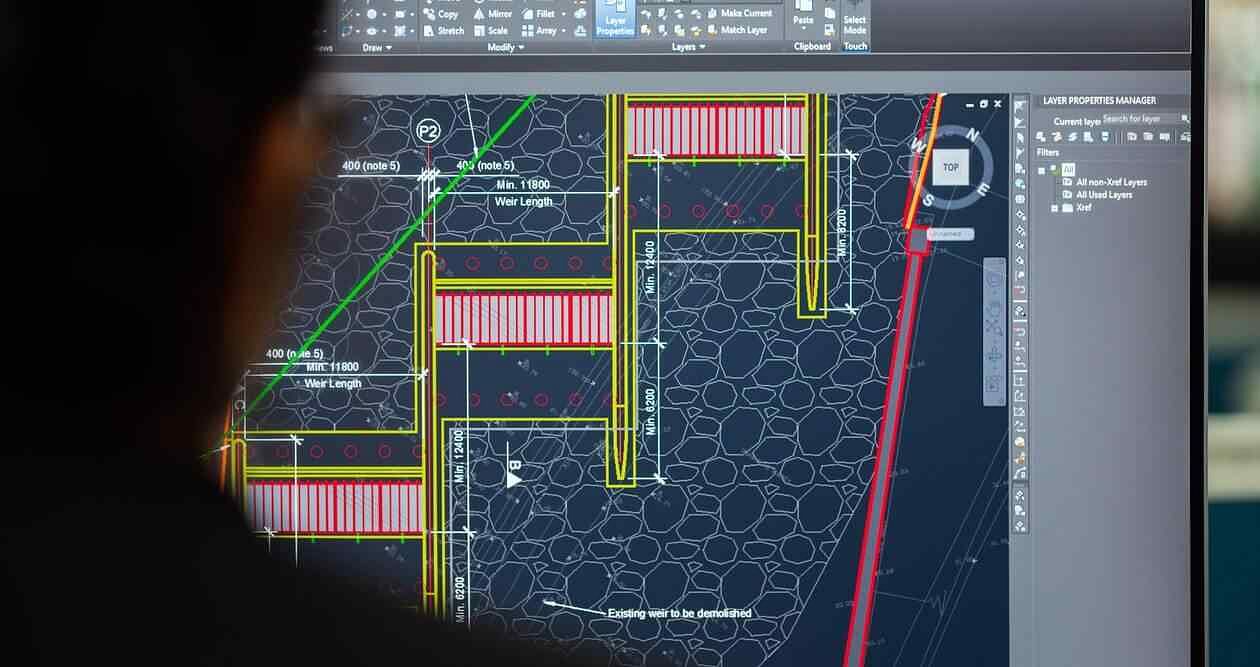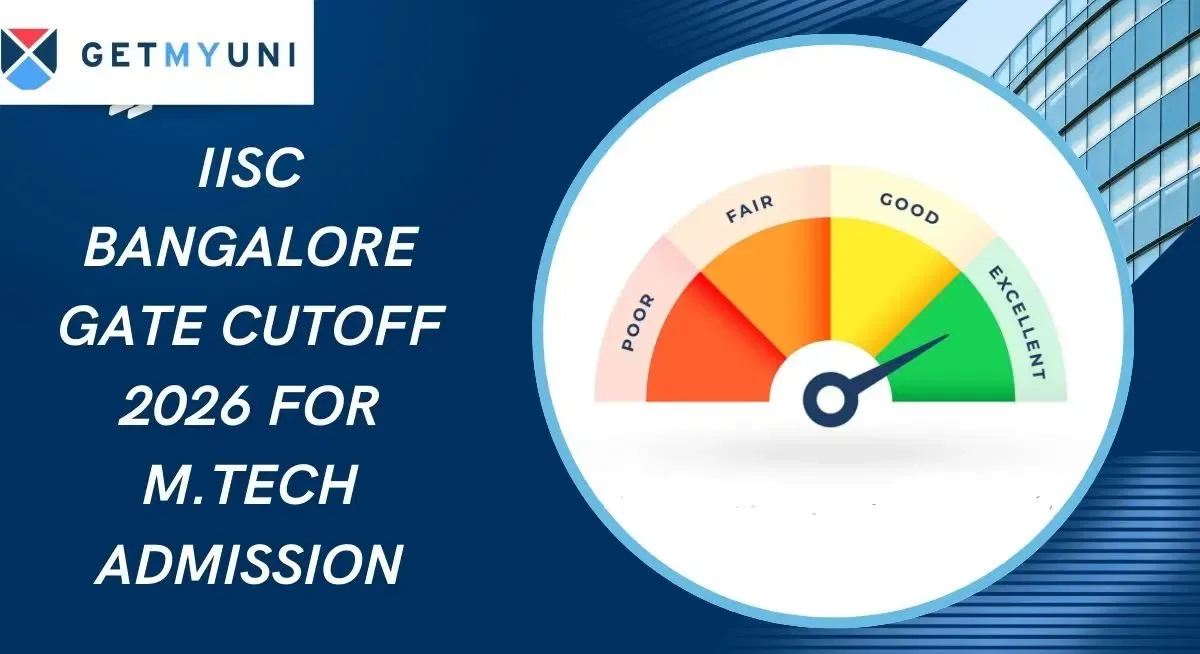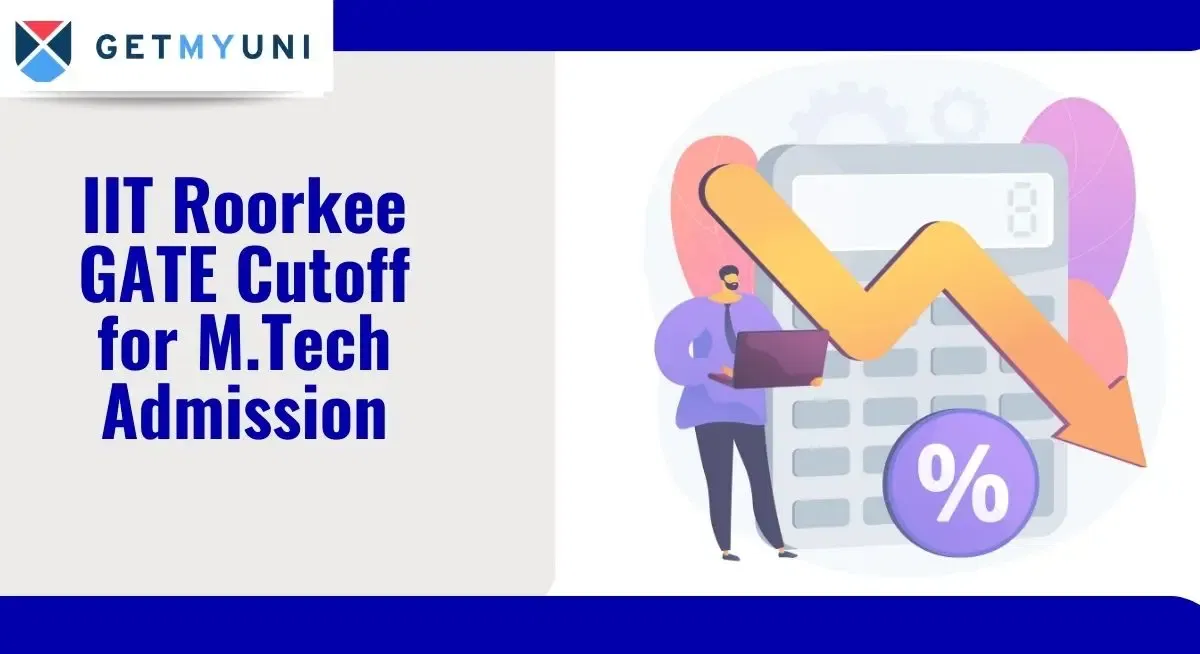Confused between whether to opt for MBA or M.Tech? Get some deep insights on course structure, eligibility and scope MBA vs M.Tech along with some benefits.
Table of Contents
- MBA or MTech Which is Better?
- MBA vs MTech: Overview
- MBA After M Tech Eligibility Criteria
- MBA vs MTech Entrance Exams
- MBA vs MTech Pros and Cons
- MBA vs MTech Syllabus
- MBA or M Tech Who Should Opt?
- MBA vs MTech Top Specializations
- MBA vs MTech Higher Education Scope
- MBA vs MTech Jobs
- MBA vs MTech Salary
- MBA vs MTech Top Colleges in India
- MBA or MTech Which to Choose?
M Tech or MBA is an ongoing debate playing with the young generation's minds for years. This is a typical decision that every one of you needs to make right after completing your bachelor's degree. Concerning career transition or skill-sets, both these courses help one step in two different directions.
MBA vs M Tech is one of the most debated topics among engineering graduates. While MTech takes you into a whole new pathway and further explores the world of engineering, MBA takes them to the journey of business & management. When selected wisely, both these academic choices will lead you in a successful career path.
As it is generally crucial for any career-related decision, choosing between MBA or MTech calls for first understanding an aspirant's calling. The choice must be dependent on your interests, capabilities, and goals.
MBA or MTech Which is Better?
MBA vs MTech are very diverse fields of study. An MTech degree offers a plethora of opportunities in academics, R&D, and other technical fields. At the same time, MBA opens up scopes in finance, consultancy, business administration, and different roles, which are not technically oriented. If any student is in a dilemma between MBA vs. MTech, here is a quick at-a-glance comparison of the two of the famous master's courses in India:
| Factors | MBA | MTech |
| Full-Form | Master of Business Administration | Master of Technology |
| Duration | Two years | Two years |
| Eligibility | BBA, B.Tech, or any Bachelor’s Degree | B.Tech/B.S./B.E./B.ARCH |
| Entrance Exams | CAT | GATE |
| Average Starting Salary | INR 7- 10 LPA | INR 7 LPA |
| Employment | Deloitte, PWC, ICICI Bank, HDFC, Vodafone | Google, Apple, Microsoft, Amazon, Intel, Samsung |
MBA vs MTech: Overview
Before analyzing which is better than the latter, let us first understand what the courses offer in general. MBA is one of the most popular and reputed postgraduate programs in India. It is a two-year course focussed on business administration and management. MBA has a diverse scope of specializations under management. The varied specializations help graduates from other streams find a knack for leadership and their core line of study. Statistics suggest a significant demand for specialized MBA graduates in several fields promising a bright career.
On the other hand, MTech is a technical post-graduation specialization course majorly pursued by engineering students. MTech has its standards and reputation in the job market, like the MBA degree. Just like the B.Tech course, the MTech course involves practical coursework that aims to make students industry-ready. Understandably, there's always a substantial demand for specialized engineering graduates in several coming-of-the-age domains.
Compared to MTech, MBA is relatively easy in coursework difficulty, but it is the exact opposite in workload. MTech and MBA have a lot of differences that need to be weighed before making a concrete decision. Let us discuss some of the fundamental differences between the two.
MBA After M Tech Eligibility Criteria
MBA and MTech have different eligibility criteria. However, both the post-graduation courses require graduates to have at least 50% in their undergraduate coursework. While MTech has certain restrictions based on an undergraduate degree, MBA accepts undergraduates across various domains. Some of the eligibility criteria for the courses are as follows:
- For any aspirant to pursue an MBA, the essential eligibility criteria are graduation in any discipline or equivalent from a recognized university. Most institutes follow the minimum score criteria in graduation, 50 percent on average or equivalent.
- While the eligibility criteria to pursue MTech is that the aspirant must graduate in B. Tech/ BE from a recognized institute, and the minimum aggregate marks required is 50% - 60% (varies from college to college)
- To enroll for M. Tech in a reputed institute like the IIT, a student needs to crack the GATE entrance exam.
- If the student plans to pursue an MBA, there are entrance exams like CAT and MAT, which they need to clear.
MBA vs MTech Entrance Exams
We got to know that both MBA and MTech admission depends on students' entrance exam scores. There are plenty of entrance-level examinations conducted by various governing bodies. The primary national-level entrance examination conducted for MTech admissions is GATE, and for MBA, it is CAT and GMAT.
| MTech Entrance Exams | MBA Entrance Exams |
| SRMJEE | XAT |
| IPU CET | MAT |
| MHT CET | SNAP |
| BHU PET | MICAT |
| VITEEE | TISSNET |
MBA vs MTech Pros and Cons
Understandably, both MBA and MTech are equally reputed postgraduate degrees in the job market. Graduates of both MBA and MTech receive several job opportunities in several domains about their field of work. Both MBA and MTech are equally worthy enough to establish a successful career. But, which is better than the latter? The question is quite common for B.Tech graduates, who seek guidance for a successful career. To get a concrete idea about the course, let’s understand the pros and cons of these courses.
Pros and Cons of MBA
MBA is one of the most reputed management programs in the country. MBA from premium institutes from IIM has its value in the job market. MBA course trains the graduates in management and business administration, which allows them to handle broader scopes. Some of the pros of pursuing an MBA after B.Tech undergraduate are :
- Graduates can venture into technical management domains that are currently very high in demand.
- Aspiring engineers can choose to become entrepreneurs with inside knowledge of business administration and technical management.
- A management role in the technical domain is highly in demand, offering more scope for a higher pay scale than pure technical domains.
Apart from pros, pursuing MBA has its cons considering the recent developments in the job market. Some of the cons associated with pursuing an MBA are:
- Over-competition in the job market causes rare unemployment.
- Payscale variance in terms of graduation university’s reputation.
- MBA fees are very costly, and sometimes it’s not affordable for average Indian households.
- Decrease in education quality as the number of colleges increased over the years.
Pros and Cons of MTech
MTech is one of the common career pathways for B.Tech undergrads after completion of their coursework. Like MBA, MTech from premium institutes from IIT’s has its value in the job market. MTech offers more specialized knowledge on engineering fundamentals that are learned during B.Tech course. MTech is done as a specialization of any engineering course. Some of the pros of pursuing MTech after B.Tech are :
- Graduates can venture into advanced and specialized technical roles in any organization. Graduates will be elevated to senior positions due to their advanced knowledge about the process.
- Job scopes are more finite and higher than B.Tech graduates, as MTech graduates, are specialized in one particular field.
- Generally, MTech graduates will receive a higher pay scale than B.Tech graduates and will double as years pass by with experience.
Apart from pros, pursuing MTech has some minor cons on its side, based on the developments in the job market. Some of the cons associated with pursuing MTech are:
- The field of specialization may have limited job scopes and more competition.
- Job scopes heavily vary on graduation university’s reputation. Top university graduates find more manageable and better scopes than the rest.
- Decrease in education quality as years progress.
- The difficulty level is pretty high and requires more hard work from graduates.
MBA vs MTech Syllabus
The MBA Syllabus and MTech Syllabus differs a lot from each other in various aspects. Therefore, the syllabus of each course is listed below:
| MBA Syllabus | MTech Syllabus |
| Managing for Sustainability | Thermal-fluid Sciences |
| Management of Change | Nanosystems |
| Leadership and Entrepreneurship | Mechanics of Materials |
| Research Methods | Information Technology |
| Human Resource Management | Geohydrology |
| Corporate Finance | Environmental Processes |
| Business Economics | Environmental Geophysics |
| Marketing Management | Environmental Fluid Mechanics and Hydrology |
| Accounting and Financial Management | Engineering Mathematics and Modeling |
| Strategic Management | Energy and Sustainable Development |
| Management Theory and Practice | Applied Operations Research |
MBA or M Tech Who Should Opt?
There are numerous skill sets and interests that aspirants should and must aspire for better advancement in the chosen fields. Some of these interests for MBA and MTech are listed below that may help you with a better understanding:
Who should Opt for an MBA?
Here are some of the skills or interests you should possess if you plan to pursue an MBA or Master in Business Administration:
- Management of industry and business interests
- Work on technical aspects is not favoured
- Financial, banking, consulting interests
- An interest in administrative work
- Interested in building your business start-up
- Social skills and networkability
Who should Opt for MTech?
If you intend to get your MTech, you should possess some of these skills or interests:
- Exceptional technical abilities
- Planning on pursuing a PhD
- Looking for a teaching career
- R&D interests
MBA vs MTech Top Specializations
Both MBA and MTech offer plenty of specialization domains for aspirants. MBA specializations primarily focus on various aspects of management and business administration, while most of the MTech specializations are engineering-oriented.
| Top MBA Specializations | Top MTech specializations |
| MBA in Human Resource | MTech Power Electronics |
| MBA in Supply Chain Management | MTech Robotics |
| MBA in Digital Marketing | MTech Mechanical Engineering |
| MBA in Finance | MTech Electrical Engineering |
| MBA in Marketing | MTech Machine Design |
MBA vs MTech Higher Education Scope
Generally, graduates consider MBA or MTech as the end-point of post-graduation studies; however, it is not. Research-oriented graduates opt for Ph.D. or other courses to further enhance their knowledge in their interest when it comes to MBA graduates looking to sharpen their skills in a particular domain or broaden their scope lookout for short-term certification courses. Some of the courses that can be taken after an MBA degree are as follows:
- Ph.D. in Management
- CISA
- CFA
- PMP
- CIPM
- CBA
- DBA
Graduates who have a research interest often opt for a Ph.D. program after completion of an MTech Degree. A Ph.D. degree seals their seniority in the particular domain and enhances their knowledge even further when they practically involve themselves in the thesis development. Apart from Ph.D., there are also several short-term courses that MTech graduates consider after completing their degree. Some of the popular courses are :
- PhD
- Six sigma black belt certification
- CISCO Certification
- AWS Certification
- CSWA
MBA vs MTech Jobs
The MBA Jobs and MTech Jobs are bright. With an MBA, you can work either at an already established corporation or start their own business using management skills. They can work on the financial as well as banking firms too.
| Top MBA Recruiting Companies in India | Top MTech Recruiting Companies in India |
| Forbes Marshall | Samsung |
| Tata Motors | Amazon |
| Mahindra & Mahindra | Intuit |
| State Bank of India | Adobe |
| Flipkart | |
| NTPC | MyLikes |
| Intel Technology | Oracle |
| Hero Motocorp | |
| American Express |
Some of the key employment areas and job designation for MBA and MTech are given below :
| MBA | M Tech | |
| Employment Areas | Finance, Marketing, Business administration, Technical Management, Sales, Business Development and Human Resource, Hotel Management, etc. | Robotics, VLSI Design, Automobile, Mechanical Engineering, Civil Engineering, Communication Systems, Embedded systems, etc. |
| Job Designations | Finance Manager, Business Analyst, Marketing Manager, Sales Manager, Production Manager, HR Manager, HR Executive, Marketing executive, etc. | Systems Design Engineer, Senior Software Engineer, Data Analyst, Senior Production Manager, Research and Development Head, Embedded Systems Engineer, etc. |
MBA vs MTech Salary
The average pay scale for both MBA and MTech graduates is competitive and higher than respective undergraduate degrees. The engineers' starting salary is not competitive compared to the MBA; graduates may look up MBA as a better option for an attractive salary package. B.Tech graduates receive an average payscale around INR 5 LPA, but with an MBA to their name, the figures can go up to INR 18 LPA. Some of the typical job designation and average pay is mentioned below.
MBA Salary and Job Roles
| Job Role | Average Payscale |
| Production Manager | INR 8.5 LPA |
| Marketing Manager | INR 7.28 LPA |
| Technical Operations Manager | INR 9.82 LPA |
| Finance Manager | INR 11 LPA |
| Business Development Manager | INR 7.28 LPA |
| Human Resource Manager | INR 8 LPA |
M Tech Salary and Job Roles
Meanwhile, for MTech graduates, the salary is INR 6 - 12 LPA. Salary packages go into much more significant numbers over years of work experience. Some of the popular job designations and the average pay are mentioned below:
| Job Role | Average Payscale |
| Design Engineering Manager | INR 10 LPA |
| Senior Software Engineer | INR 8.11 LPA |
| Data Scientist | INR 10 LPA |
| Process Engineer | INR 7.25 LPA |
| Senior QA Engineer | INR 9.2 LPA |
| Systems Engineer | INR 7.28 LPA |
MBA vs MTech Top Colleges in India
Numerous colleges and universities in India offer MBA and MTech courses. These top institutes are listed below:
| Top Colleges for MBA | Top Colleges for MTech |
| IIM Ahmedabad | IIT Madras |
| IIM Bangalore | IIT Bombay |
| IIM Calcutta | IIT Hyderabad |
| IIM Lucknow | IIT Kanpur |
| IIT Kharagpur | IIT Kharagpur |
| IIM Kozhikode | IIT Roorkee |
| IIM Indore | IIT Roorkee |
| MDI Gurgaon | NIT Trichy |
| IIT Delhi | IIT Indore |
MBA or MTech Which to Choose?
The only answer to this question lies in the hands of the students. A postgraduate degree is a must if one is willing to get higher on the career scale. After graduation in B.Tech, a student is eligible for both these courses. However, the industry the student can venture into gets different as per the choice one makes. MBA vs MTech has been some of the popular choices of course composition among B.Tech graduates for their PG degree.
Management studies after undergraduate: One can opt for an MBA if they are interested in industry/business management, have a fascination with administrative work, have skills for networking and socializing, or wish to build their start-up. MBA covers finance, consultancy, human resources, management, and banking. MBA after B.Tech takes one into the executive department of any industry.
Baby steps for specialization in engineering: B.Tech graduates can opt for MTech as their postgraduate degree if they have excellent technical skills, have plans to go for a P.HD, are interested in pursuing a career as a teacher, or are interested in R&D. MTech coursework covers academics, engineering equipment, research, and developments. It also encourages graduates to venture into purse research-based works apart from practical training.
There is no point in comparing M. Tech and MBA courses. Both are specialized degrees and have value in their respective fields. Both M. Tech and MBA provide excellent career prospects and have gained importance over time. It all comes down to students' personal choices and opinions.























POST YOUR COMMENT